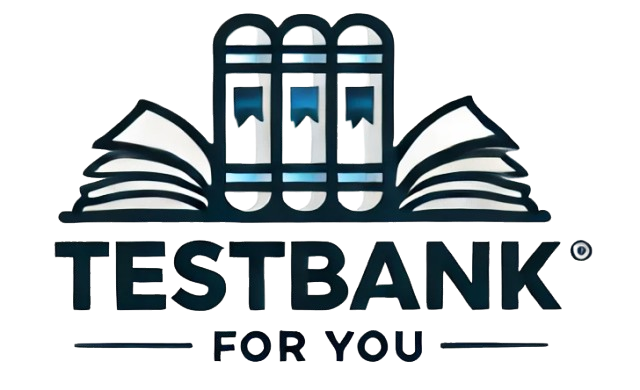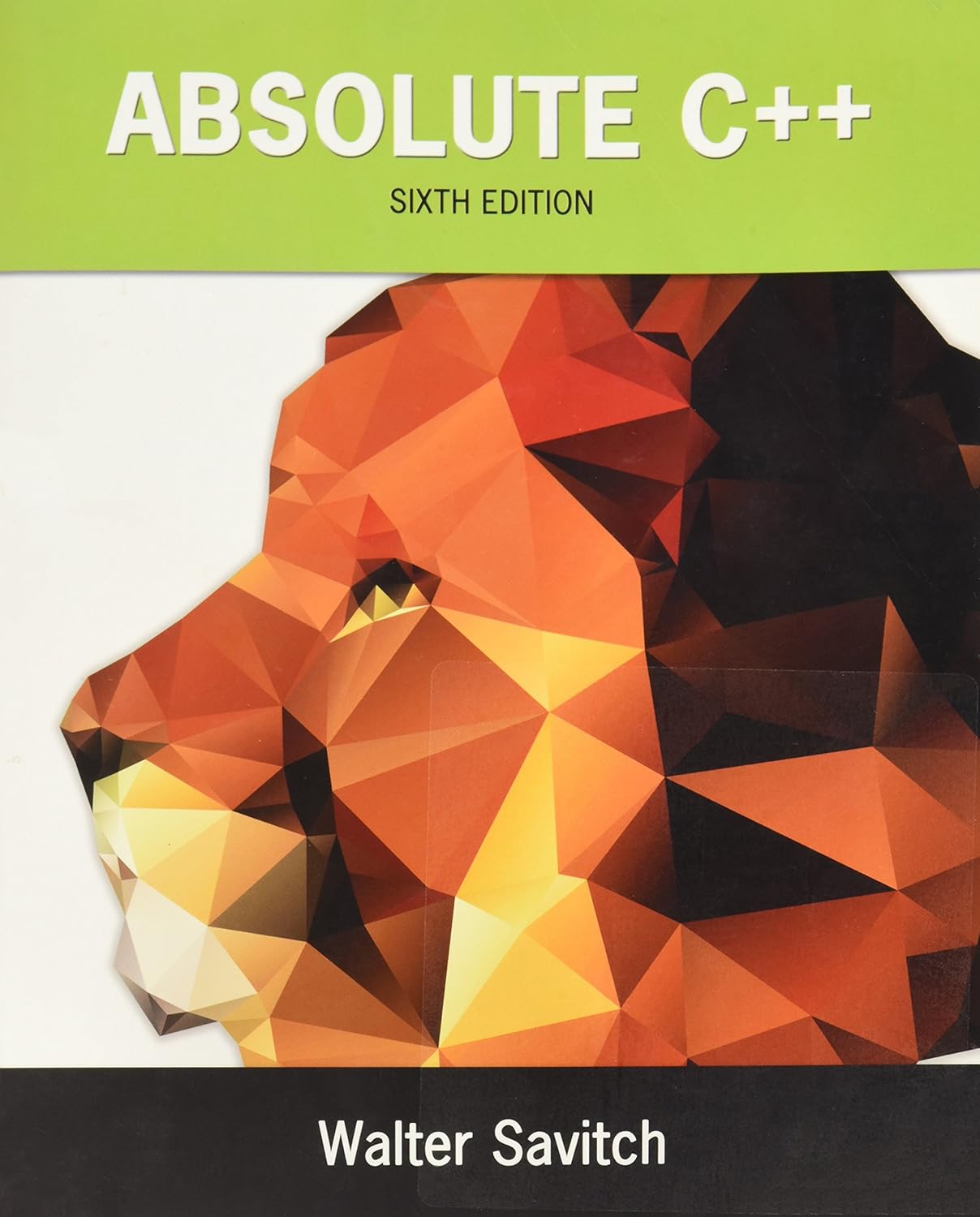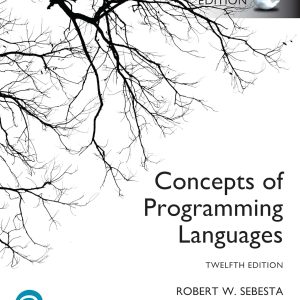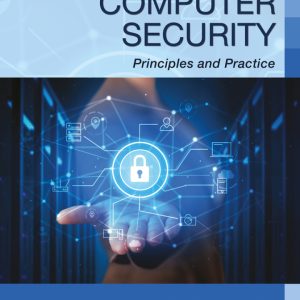Absolute C++ 6th Edition by Savitch TEST BANK
Original price was: $60.00.$30.00Current price is: $30.00.
Test Bank for Absolute C++, 6th Edition, Walter Savitch, Kenrick Mock, ISBN-10: 0134225392, ISBN-13: 9780134225395 To get more information about this please send us E-mail to smtb7000@gmail.com
Description
Test Bank for Absolute C++ (6th Edition) by Walter Savitch and Kenrick Mock
ISBN-10: 0134225392 | ISBN-13: 9780134225395
The Test Bank for Absolute C++ (6th Edition) is an essential academic resource designed to support instructors and students in mastering core concepts of C++ programming. This test bank aligns precisely with the textbook by Walter Savitch and Kenrick Mock and includes multiple-choice questions, true/false statements, short answers, and code analysis exercises for every chapter.
This comprehensive test bank is perfect for quizzes, midterms, final exams, and practice assessments. Below is a detailed overview of the chapter-wise structure covered in the test bank:
Chapter 1: C++ Basics
This chapter introduces the foundations of C++ programming, including syntax, variables, data types, operators, and simple input/output. The test bank covers basic logic building and debugging skills essential for beginners.
Chapter 2: Flow of Control
Covers decision-making constructs such as if, else, switch, and loop structures (for, while, do-while). Questions assess understanding of logical expressions, control flow, and nested structures.
Chapter 3: Function Basics
Focuses on function declaration, definition, return values, and scope. Test items help evaluate understanding of modular programming and reusable code.
Chapter 4: Parameters and Overloading
Evaluates the use of function parameters, pass-by-value vs. pass-by-reference, default parameters, and function overloading to support code flexibility.
Chapter 5: Arrays
Tests knowledge of single-dimensional and multidimensional arrays, array initialization, traversal, and basic searching/sorting algorithms.
Chapter 6: Structures and Classes
Introduces structures (struct) and object-oriented concepts such as classes, encapsulation, and data abstraction. Questions include code completion and conceptual analysis.
Chapter 7: Constructors and Other Tools
Focuses on constructors, destructors, accessors, mutators, and static members. The test bank includes both theoretical questions and practical application scenarios.
Chapter 8: Operator Overloading, Friends, and References
Covers custom operator overloading, use of friend functions, and reference variables, with a focus on how these features improve class design.
Chapter 9: Strings
Evaluates skills in handling C-style strings and C++ string objects. Test items include string manipulation, comparison, and input/output techniques.
Chapter 10: Pointers and Dynamic Arrays
Examines pointers, dynamic memory management (new, delete), pointer arithmetic, and dynamic arrays. Critical for understanding memory efficiency.
Chapter 11: Separate Compilation and Namespaces
Assesses how to structure large programs using separate header and source files, and manage naming conflicts using namespaces.
Chapter 12: Streams and File I/O
Tests file handling concepts including reading from and writing to text files using file streams, and error detection in file operations.
Chapter 13: Recursion
Includes classic recursion problems such as factorials, Fibonacci sequences, and recursive sorting. Focuses on recursion logic and base cases.
Chapter 14: Inheritance
Evaluates understanding of base and derived classes, access specifiers, and inheritance hierarchies essential for object-oriented programming.
Chapter 15: Polymorphism and Virtual Functions
Covers virtual functions, dynamic binding, and abstract classes. Questions test runtime behavior and correct usage in polymorphic contexts.
Chapter 16: Templates
Tests understanding of function and class templates, supporting generic programming and type-independent functions and data structures.
Chapter 17: Linked Data Structures
Assesses implementation and manipulation of singly and doubly linked lists, stacks, and queues. Emphasis on pointer operations and memory links.
Chapter 18: Exception Handling
Focuses on try, catch, and throw blocks, handling exceptions gracefully, and defining custom exception types.
Chapter 19: Standard Template Library (STL)
Covers STL containers like vector, list, set, and map, along with iterator usage and built-in algorithms.
Chapter 20: Patterns and UML
Introduces software design patterns and UML diagrams for modeling class relationships and object interaction.
This Absolute C++ 6th Edition Test Bank is an invaluable tool for reinforcing student learning outcomes, building assessments, and ensuring mastery of C++ programming at all academic levels.
https://testbankforyou.com/shop/









